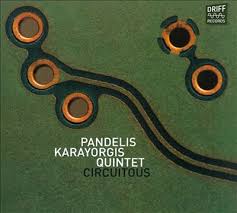Circuitous
Circuitous refers to a route or journey that is longer than the most direct way. The term is often used to describe paths, explanations, or processes that are indirect and take a longer time to reach the intended goal.
Etymology[edit | edit source]
The word "circuitous" is derived from the Latin word "circuitus," which means "a going around." The term has been in use in the English language since the late 16th century.
Usage[edit | edit source]
Circuitous routes are often taken to avoid obstacles, for scenic purposes, or due to lack of direct paths. In a metaphorical sense, circuitous explanations or arguments are those that are not straightforward and may involve unnecessary details or digressions.
Examples[edit | edit source]
- A circuitous route might be taken by a hiker to avoid difficult terrain.
- A circuitous explanation might be given by someone trying to avoid a direct answer.
Related Concepts[edit | edit source]
Applications[edit | edit source]
[edit | edit source]
In navigation, a circuitous route may be planned to avoid hazards, such as rough terrain or bad weather. This is common in both land navigation and maritime navigation.
In Communication[edit | edit source]
In communication, circuitous language can be used for various reasons, including politeness, evasion, or to provide a more detailed background. This is often seen in diplomacy and politics.
In Medicine[edit | edit source]
In medicine, circuitous routes can refer to the pathways taken by nerves or blood vessels that are not direct. This can be important in surgical procedures where understanding the exact route is crucial.
See Also[edit | edit source]
References[edit | edit source]
External Links[edit | edit source]
Translate: - East Asian
中文,
日本,
한국어,
South Asian
हिन्दी,
தமிழ்,
తెలుగు,
Urdu,
ಕನ್ನಡ,
Southeast Asian
Indonesian,
Vietnamese,
Thai,
မြန်မာဘာသာ,
বাংলা
European
español,
Deutsch,
français,
Greek,
português do Brasil,
polski,
română,
русский,
Nederlands,
norsk,
svenska,
suomi,
Italian
Middle Eastern & African
عربى,
Turkish,
Persian,
Hebrew,
Afrikaans,
isiZulu,
Kiswahili,
Other
Bulgarian,
Hungarian,
Czech,
Swedish,
മലയാളം,
मराठी,
ਪੰਜਾਬੀ,
ગુજરાતી,
Portuguese,
Ukrainian
Navigation: Wellness - Encyclopedia - Health topics - Disease Index - Drugs - World Directory - Gray's Anatomy - Keto diet - Recipes
Search WikiMD
Ad.Tired of being Overweight? Try W8MD's physician weight loss program.
Semaglutide (Ozempic / Wegovy and Tirzepatide (Mounjaro / Zepbound) available.
Advertise on WikiMD
WikiMD is not a substitute for professional medical advice. See full disclaimer.
Credits:Most images are courtesy of Wikimedia commons, and templates Wikipedia, licensed under CC BY SA or similar.Contributors: Prab R. Tumpati, MD

